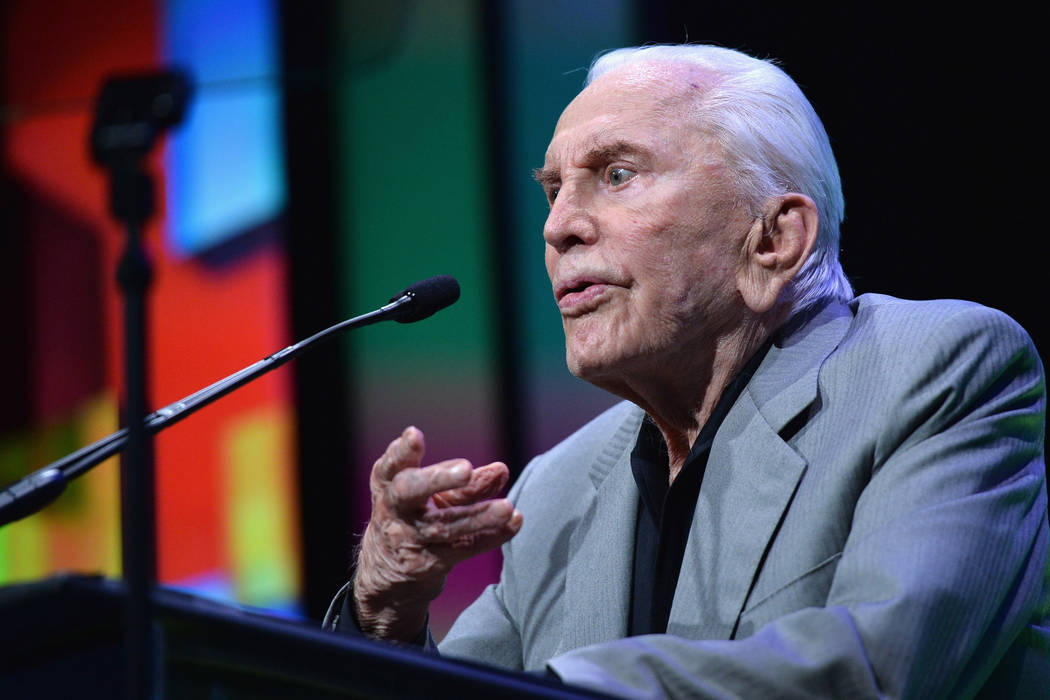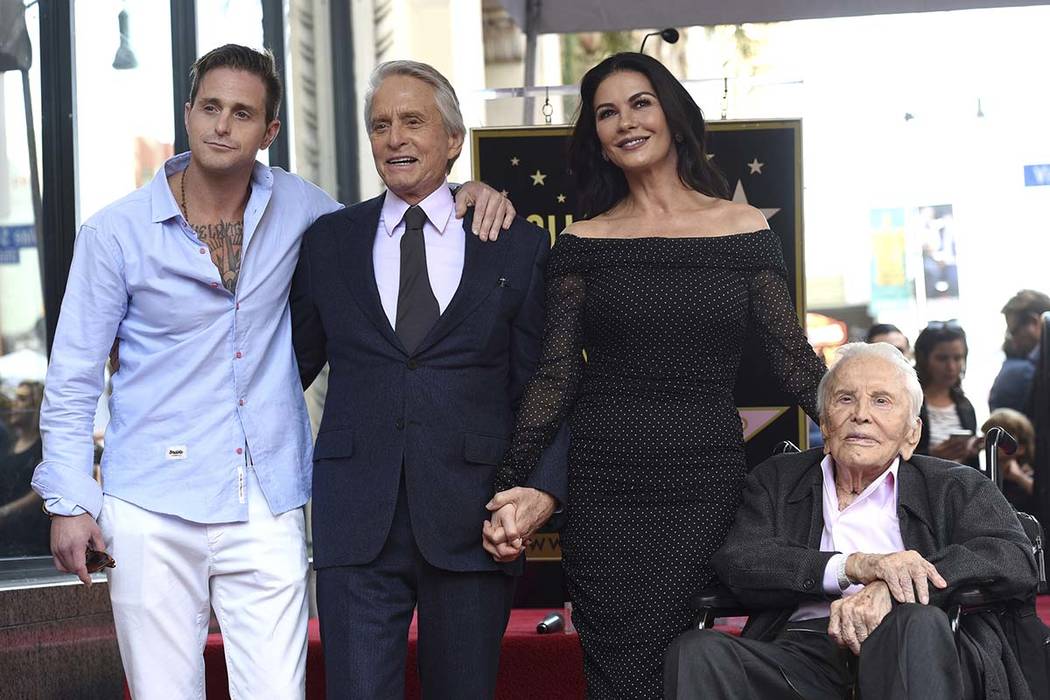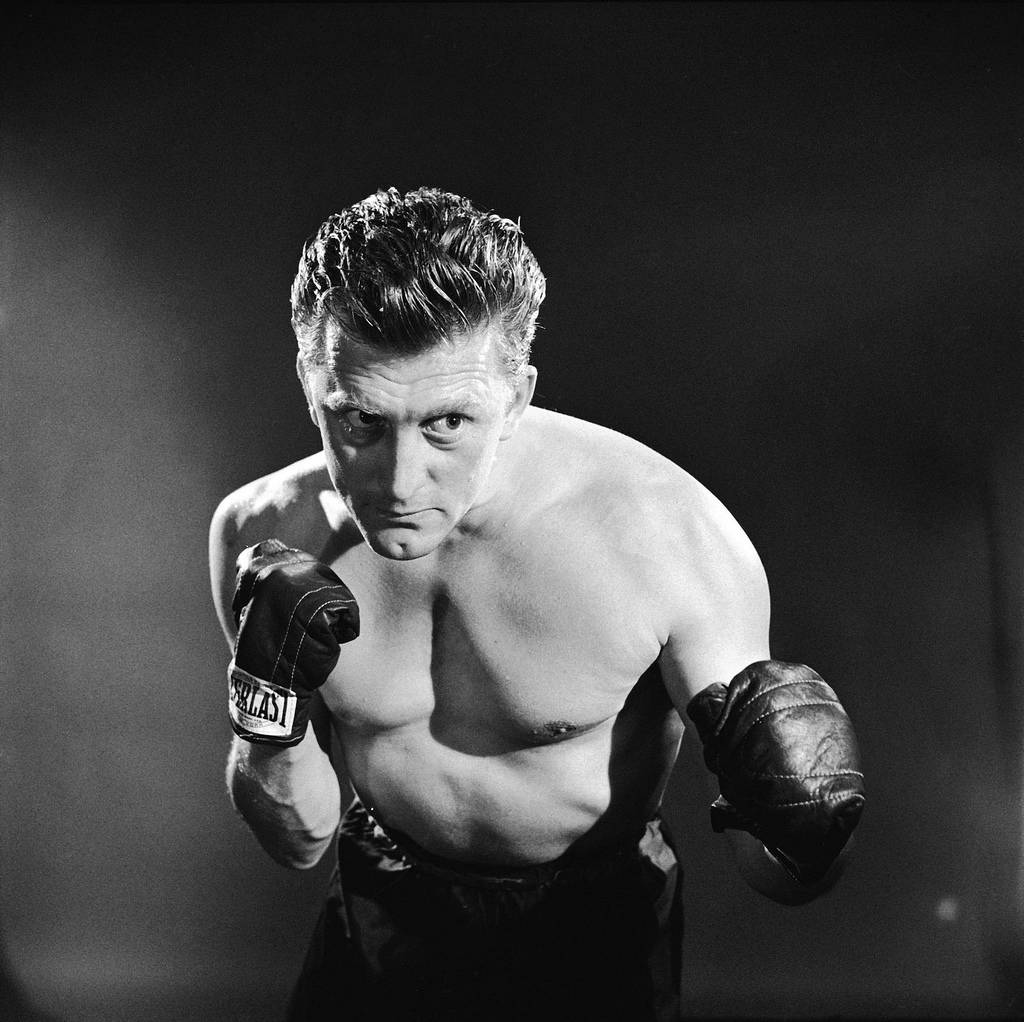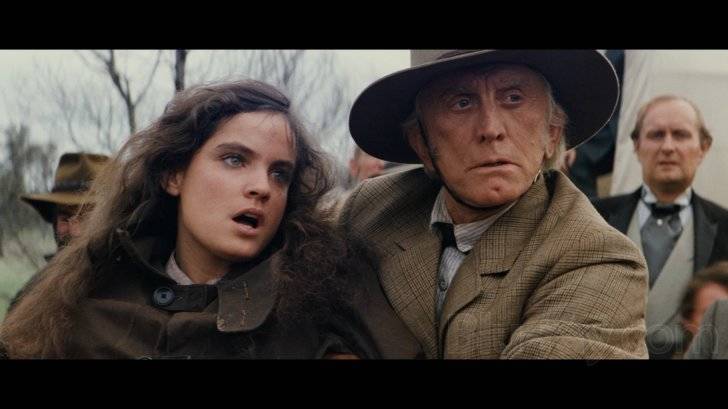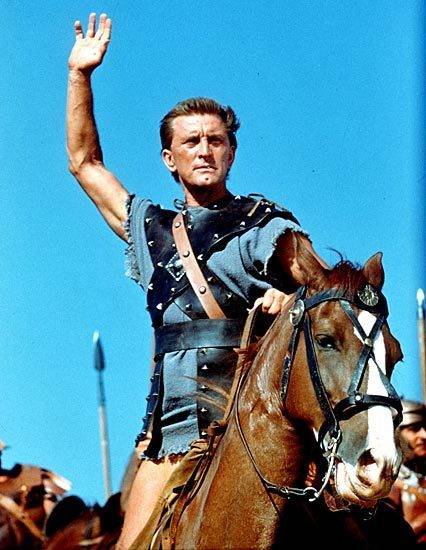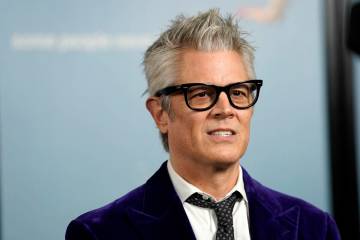Kirk Douglas, legendary Hollywood actor, dies at 103
LOS ANGELES — Kirk Douglas, the intense, muscular actor with the dimpled chin who starred in “Spartacus,” “Lust for Life” and dozens of other films, helped fatally weaken the blacklist against suspected Communists and reigned for decades as a Hollywood maverick and patriarch, died Wednesday, his family said. He was 103.
“It is with tremendous sadness that my brothers and I announce that Kirk Douglas left us today at the age of 103,” his son Michael said in a statement on his Instagram account. “To the world, he was a legend, an actor from the golden age of movies who lived well into his golden years, a humanitarian whose commitment to justice and the causes he believed in set a standard for all of us to aspire to.”
Kirk Douglas’ death was first reported by People magazine.
His granite-like strength and underlying vulnerability made the son of illiterate Russian immigrants one of the top stars of the 20th century. He appeared in more than 80 films, in roles ranging from Doc Holliday in “Gunfight at the O.K. Corral” to Vincent van Gogh in “Lust for Life.”
He worked with some of Hollywood’s greatest directors, from Vincente Minnelli and Billy Wilder to Stanley Kubrick and Elia Kazan. His career began at the peak of the studios’ power, more than 70 years ago, and ended in a more diverse, decentralized era that he helped bring about.
Always competitive, including with his own family, Douglas never received an Academy Award for an individual film, despite being nominated three times — for “Champion,” “The Bad and the Beautiful” and “Lust for Life.”
Awarded Presidential Medal of Freedom
But in 1996, the Academy of Motion Picture Arts and Sciences awarded him an honorary Oscar. His other awards included a Presidential Medal of Freedom and a lifetime achievement award from the American Film Institute.
He was a category unto himself, a force for change and symbol of endurance.
In his latter years, he was a final link to a so-called “Golden Age,” a man nearly as old as the industry itself.
In his youth, he represented a new kind of performer, more independent and adventurous than Clark Gable, Spencer Tracy and other giants of the studio era of the 1930s and 1940s, and more willing to speak his mind.
Reaching stardom after World War II, he was as likely to play cads (the movie producer in “Bad and the Beautiful,” the journalist in “Ace in the Hole”) as he was suited to play heroes, as alert to the business as he was at home before the camera. He started his own production company in 1955, when many actors still depended on the studios, and directed some of his later films.
A born fighter, Douglas was especially proud of his role in the the downfall of Hollywood’s blacklist, which halted and ruined the careers of writers suspected of pro-Communist activity or sympathies. By the end of the ’50s, the use of banned writers was widely known within the industry, but not to the general public.
Douglas, who years earlier had reluctantly signed a loyalty oath to get the starring role in “Lust for Life,” provided a crucial blow when he openly credited the former Communist and Oscar winner Dalton Trumbo for script work on “Spartacus,” the epic about a slave rebellion during ancient Rome that was released in 1960. (A few months earlier, Otto Preminger had announced Trumbo’s name would appear on the credits for “Exodus,” but “Spartacus” came out first.)
“Everybody advised me not to do it because you won’t be able to work in this town again and all of that. But I was young enough to say to hell with it,” Douglas said about “Spartacus” in a 2011 interview with The Associated Press. “I think if I was much older, I would have been too conservative: ‘Why should I stick my neck out?’”
‘I’m Spartacus’
Douglas rarely played lightly. He was compulsive about preparing for roles and a supreme sufferer on camera, whether stabbed with scissors in “Ace in the Hole” or crucified in “Spartacus.”
Critic David Thomson dubbed Douglas “the manic-depressive among Hollywood stars, one minute bearing down on plot, dialogue and actresses with the gleeful appetite of a man just freed from Siberia, at other times writing not just in agony but mutilation and a convincingly horrible death.”
Douglas’ personal favorite was the 1962 Western “Lonely are the Brave,” which included a line of dialogue from a Trumbo script he called the most personal he ever spoke on screen: “I’m a loner clear down deep to my very guts.”
The most famous words in a Douglas movie were spoken about him, but not by him.
In “Spartacus,” Roman officials tell a gathering of slaves their lives will be spared if they identify their leader, Spartacus. As Douglas rises to give himself up, a growing chorus of slaves jump up and shout, “I’m Spartacus!”
Douglas stands silently, a tear rolling down his face.
As Michael Douglas once observed, few acts were so hard to follow. Kirk Douglas was an acrobat, a juggler, a self-taught man who learned French in his 30s and German in his 40s.
Life was just so many walls to crash through, like the stroke in his 70s that threatened — but only threatened — to end his career. He continued to act and write for years and was past 100 when he and his wife published “Kirk and Anne: Letters of Love, Laughter, and a Lifetime in Hollywood.”



